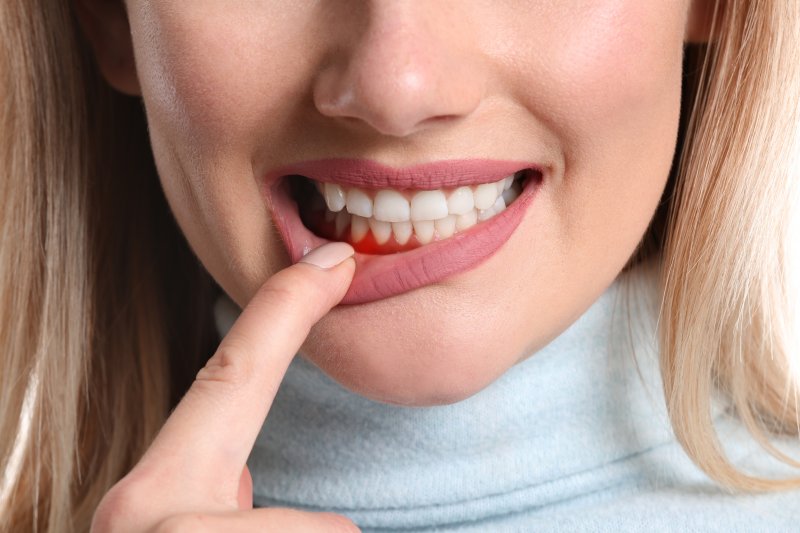
With the emergence of COVID-19, the world has suddenly been thrust into a new reality, forcing everyone to reconsider ways to maintain their total wellness. As an example of the relationship between the different parts of the body, researchers have discovered a possible link between COVID-19 (which is a respiratory ailment) and the condition of one’s gum health. As you continue reading, learn how untreated gum disease in Reynoldsburg could increase the risk of contracting COVID-19.
The Connection Explained
New evidence about the correlation between gum health and contracting COVID-19 has emerged in a report published by the Journal of the California Dental Association. Titled “The Mouth COVID Connection,” the report reveals that COVID-19 patients with prior underlying gum disease may be at a higher risk of respiratory failure. This is significant news, given that COVID-19 affects the respiratory system.
Studies show that patients with high levels of IL-6 (interleukin), a harmful protein that is elevated when the gums become infected, can trigger life-threatening respiratory problems. Patients in this category who develop COVID-19 are more likely to need a ventilator to breathe.
Ways to Prevent Gum Disease
Prevention is always the best way to treat gum disease. Here are some steps you can take to protect yourself:
- Limit your sugar consumption, as oral bacteria are attracted to the leftover debris.
- Maintain excellent dental health, which should include brushing and flossing your teeth at least two times a day to keep bacteria growth under control.
- Every 60 to 90 days, discard your old toothbrush to prevent new bacteria entering your mouth.
- Visit your dentist in Port Orange every six months for cleanings and examinations. If you have a history of cavities, you may consider more frequent appointments to make sure there are no new developments.
Treatment for Gum Disease
Some of the common warning signs of gum disease are bleeding gums, foul breath, or tooth or gum sensitivity. If you notice any of these symptoms, you should immediately bring it to a dentist’s attention.
Here are the two most common treatment methods available:
Scaling and Root Planing
The procedure starts with the dentist cleaning beneath the gum line to remove bacteria. Then, he or she will clean the affected tooth roots and smooth the area to make it difficult for new bacteria to accumulate in the future.
Arestin Antibiotic Therapy
In addition to performing a scaling and root planing procedure, the dentist in Reynoldsburg will typically provide dedicated antibiotic therapy, using a compound called Arestin. The dentist will place small amounts of the antibiotic directly in the gum pockets that have formed as a result of the infection. In addition to killing the bacteria present, it will promote gum healing.
While COVID-19 has created its fair share of stressors, it’s comforting to know that you can take some steps to protect yourself. By maintaining excellent dental care habits and seeking the appropriate treatment to restore your gum health, you’ll be much better off!
About the Author
Dr. Walter Mick earned his dental degree from The Ohio State University School of Dentistry. He has since gone on to provide over 30 years of compassionate, conservative and competent care. As part of his endless quest for excellence, Dr. Mick has taken several hours of continuing education. He utilizes his vast knowledge and years of experience to help patients overcome gum disease and maintain the best oral health possible at Mick Family Dental Care. He can be reached for more information or to schedule a visit through his website.
